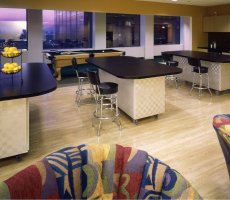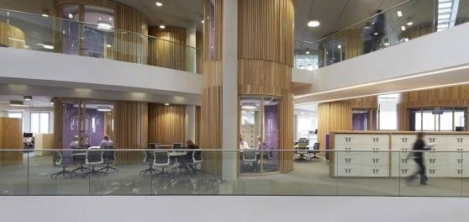November 25, 2016
Dissatisfaction with work-life balance is more and more likely to be a reason to quit 0
The term ‘work-life balance’ has been promised by large corporations for years – and it now could finally become a key factor choosing a career. According to a worldwide survey, the upcoming generation of Y and Z workers demand more flexibility, less face-time, and rather than having to account for half-day annual leave, attending school plays or meetups, expect to be trusted to do the job on their terms. However, the research by Emolument also claims that in some industries, implementing such a shift in perception and practice is still a long way off, as client demands in terms of reactivity and timeliness remain unchanged. Employers do understand that dissatisfaction with work-life balance is more and more likely to be a reason for quitting though, and that higher pay struggles to compensate for time spent away from family and friends. With more pressure on women to cover for childcare commitment, housework and logistics, 42 percent of women say they’ve a bad work/life balance compared to 33 percent of men.














 When former Google employee Marissa Mayer joined Yahoo as its CEO in 2012, she inherited the company’s vast problems. Though it was once seen as one of the first tech behemoths, Yahoo’s inability to come up with ground breaking products like Google and others, put it in a slow, steady decline. Mayer was immediately tasked with trying to reinvigorate the stagnating company. Her focus was to find a way to identify and retain talent, while phasing out ineffective employees. However, Yahoo’s new management policies have brought about much debate and criticism from HR experts. A controversial book by journalist Nicholas Carlson titled “Marissa Mayer and the Fight to Save Yahoo!” paints a highly critical view of Mayer’s first years as CEO. In response others have defended her, arguing that she has done the best she can with the resources available, but has become a scapegoat for poor management, like so many other women in powerful positions.
When former Google employee Marissa Mayer joined Yahoo as its CEO in 2012, she inherited the company’s vast problems. Though it was once seen as one of the first tech behemoths, Yahoo’s inability to come up with ground breaking products like Google and others, put it in a slow, steady decline. Mayer was immediately tasked with trying to reinvigorate the stagnating company. Her focus was to find a way to identify and retain talent, while phasing out ineffective employees. However, Yahoo’s new management policies have brought about much debate and criticism from HR experts. A controversial book by journalist Nicholas Carlson titled “Marissa Mayer and the Fight to Save Yahoo!” paints a highly critical view of Mayer’s first years as CEO. In response others have defended her, arguing that she has done the best she can with the resources available, but has become a scapegoat for poor management, like so many other women in powerful positions.
 A new survey by office products supplier Viking claims that a third of workers suffer from stress and yet have no one to talk to about it. The authors of the study claims that these findings correlate strongly with people’s overall levels of fulfilment at work, with 46 percent of those surveyed saying they had negative thoughts about their job several times a week. When it comes to a person’s working environment, the results showed that office workers were more stressed than those working from home. Factors that contributed to these stress levels included working overtime, not taking enough breaks, having no one to talk to, job satisfaction, pressure to succeed. It’s no surprise that a lack of breaks is causing stress, with half of office workers admitting to taking no breaks at all during the day, excluding lunch. Conversely, a massive 61 percent of people working from home said they took two to three breaks throughout the day.
A new survey by office products supplier Viking claims that a third of workers suffer from stress and yet have no one to talk to about it. The authors of the study claims that these findings correlate strongly with people’s overall levels of fulfilment at work, with 46 percent of those surveyed saying they had negative thoughts about their job several times a week. When it comes to a person’s working environment, the results showed that office workers were more stressed than those working from home. Factors that contributed to these stress levels included working overtime, not taking enough breaks, having no one to talk to, job satisfaction, pressure to succeed. It’s no surprise that a lack of breaks is causing stress, with half of office workers admitting to taking no breaks at all during the day, excluding lunch. Conversely, a massive 61 percent of people working from home said they took two to three breaks throughout the day.















June 2, 2015
The bonds that link work with place are loosening day by day
by Paull Robathan • Comment, Flexible working, Technology, Work&Place
(more…)